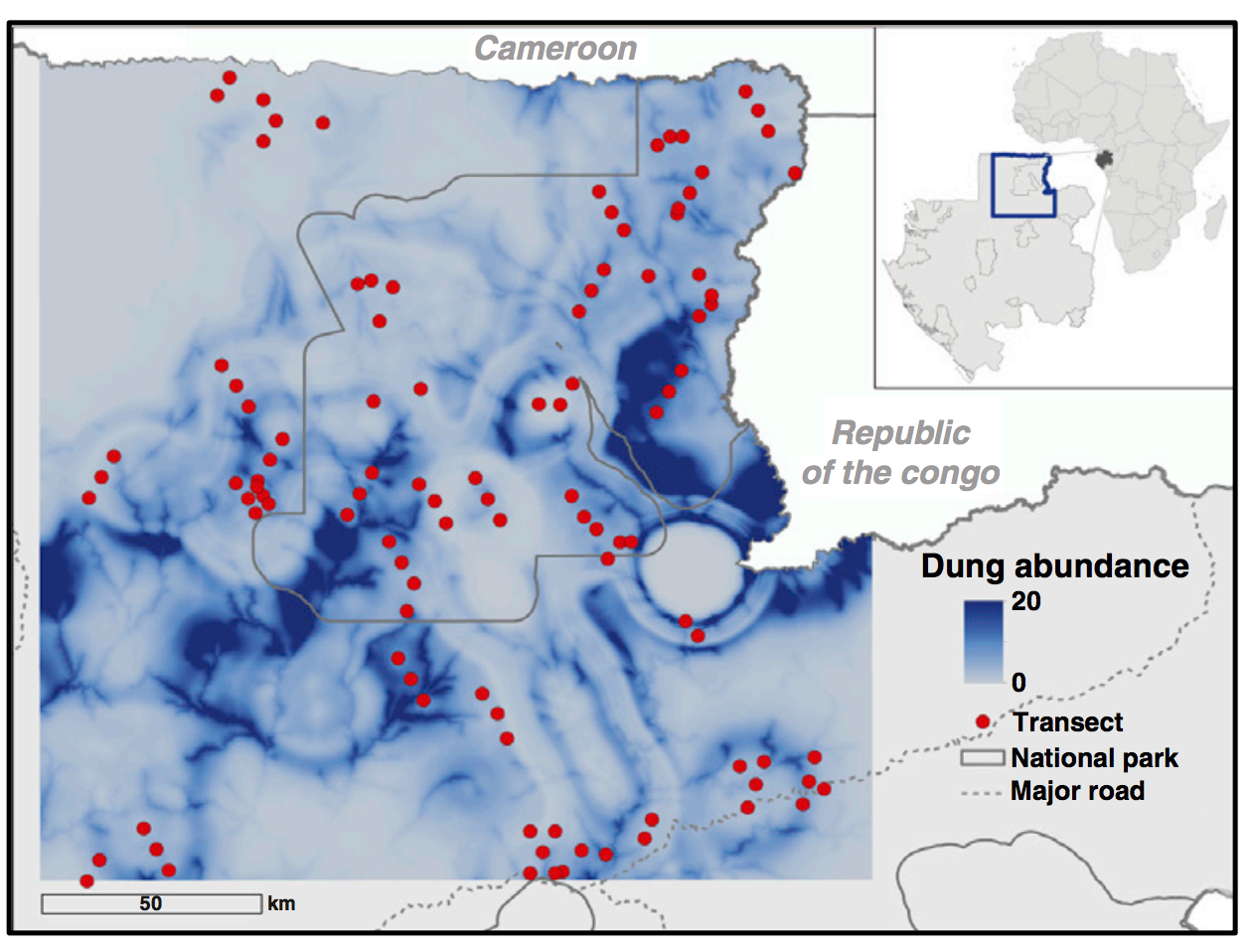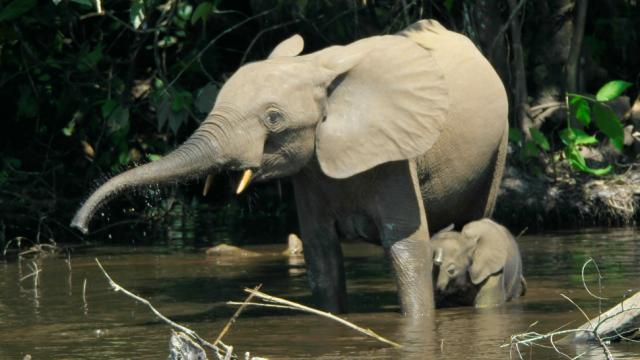The population of forest elephants in Gabon’s Minkébé National Park — one of Central Africa’s largest and most important nature preserves — has declined by a whopping 81.5 per cent since 2004 due to poaching. It’s considered a major setback for the preservation of this endangered species, of which less than 100,000 remain in the wild.
Image: Thomas Breuer/PLoS
A discouraging new study published in Current Biology shows that 25,000 elephants were poached in Minkébé National Park for their ivory between 2004 and 2014. That’s a lot more than expected, amounting to approximately six to seven elephants killed each day over a 10 year period.
At the turn of the 21st century, the 7570 square km Minkébé National Park featured the highest population density of forest elephants in all of Central Africa. Given that half of Central Africa’s forest elephants, which are distinct from the more well-known savanna elephants, live in Gabon, these losses represent a major setback for the species.
The declines were determined by comparing data from two large-scale surveys of elephant dung from 2004 to 2014. To ensure accuracy, the Duke University researchers accounted for environmental factors, such as rain, that could have accelerated the rate at which the dung decayed and washed away. According to the results, some 32,850 elephants lived in the park in 2004, compared to the 7370 in 2014 — a loss of 81.5 per cent.

Image: Poulsen et al., 2017
John Poulsen, the lead author of the study, says the elephant densities inside the park are now comparable to those seen on the outside of the preserve. Some of the poaching is coming from within Gabon itself, but the new study points the finger at cross-border poaching by hunters from neighbouring nations, primarily Cameroon to the north.
“Based on changes in the abundance and geographic distribution of the dung, we identified two fronts of poaching pressure,” said Poulsen in a statement. “Elephant numbers in the south of the park, which is 58 kilometers from the nearest major Gabonese road, have been somewhat reduced,” he said. “By comparison, the central and northern parts of the park — which, at one point, are just 6.1 kilometers from Cameroon’s national road — have been emptied.”
Poulsen says the proximity of this road makes it easy for the poachers to enter into the park from Cameroon and transport their illegal haul back to the city of Douala, a major hub of the international ivory trade.
Since 2011, the Gabonese government has enacted measures to protect the forest elephants, such as elevating their status to “fully protected”, creating a National Park police force, doubling the park’s anti-poaching budget and by becoming the first African nation to burn all confiscated ivory. But as the new study shows, these measures aren’t effective enough.
“To save Central Africa’s forest elephants, we need to create new multinational protected areas and coordinate international law enforcement to ensure the prosecution of foreign nationals who commit or encourage wildlife crimes in other countries,” said Poulsen. “Studies showing sharp declines in forest elephant populations are nothing new,” he said, “but a 78 to 81 per cent loss in a single decade from one of the largest, most remote protected areas in Central Africa is a startling warning that no place is safe from poaching.”
Another problem, says Poulsen, is that forest elephants get lumped in with other populations of African elephants, such as savanna and bush elephants. Forest elephants, which dwell in the Congo Basin, are the smallest of the three living species of elephant, but they’re still the third-largest living terrestrial animal on the planet. Genetic analysis has shown that forest elephants should be designated a distinct species (L. cyclotis), and not referred to as a “subspecies” of their savanna-dwelling cousins.
By recognising the African forest elephants as a distinct species, Poulsen said their status could be raised to “critically endangered”, thus inspiring more international funding and conservation efforts.
